|
If you have ever visited the parking lot at Key Largo Publix, you have undoubtedly seen the chickens there. Great idea for a story, but why weren’t they there mid-afternoon on a weekday when I actually have my camera to take their photograph? I drove the whole lot, and all I saw were some chicken feathers. Thinking the worst… did the gentrification squad move them away? My friend said when she was shopping early on a Sunday they were everywhere… even blocking the road, as if daring you to drive-by. So I returned early one morning, and there they were in all their parading, pecking, crowing, scratching glory. Luckily I had finished photographing by the time the parking lot clean-up crew, with their blowers and weedwackers arrived, and the chickens and roosters dispersed into the woods. Now that I know their routine, tell me, “where did they come from and why do they stay?” The chicken (Gallus domesticus) is a domesticated species that arose from the jungle fowl that was originally found throughout the Caribbean, including Cuba. Early settlers in the Keys, many from the Caribbean Islands of the Bahamas and Cuba, kept chicken coups and used them to feed themselves, consuming both the meat and their eggs. The 10 Year War in Cuba (1868-1878), a war led by planters and wealthy Cubans for independence from Spain, caused many Cubans to migrate to Key West. There were three Cuban wars for independence, the last of which escalated to the United State’s involvement in the Spanish American War, after the sinking of the USS Maine in Havana Harbor in 1898. A 1906 postcard of sailors betting on a cockfight depicted everyday life aboard warships during WWI. These sailors must have adopted some of the traditions of the countries they were protecting. Cubans arriving in Key West fleeing a war brought with them their Cuban heritage, including their roosters and the sport of cockfighting. Is it fair to say the Cuban roosters qualify as military veterans or AWOL? Cockfighting thrived in the Keys until it was outlawed in the 1970’s; no longer being of use to their owners, these roosters were released into the streets of Key West. Few are aware that back in the mid-80’s a flourishing illegal cockfighting business was going on in north Key Largo, just off CR 905 about a mile south of the three way at Card Sound Road. On weekends I recall seeing many cars turn off the main road and drive into the hammocks. At a glance, it didn’t look like it was a family picnic. The conversation was loud and exclusively Spanish; there were guards checking all who entered, a few women, but mostly a lot of older Cubans with lots of cash and many bodyguards with lots of guns. Hidden behind the trees was a huge steel frame building that law enforcement called “The Chicken Ranch”. There were numbered seats surrounding an open ring in the center, where the cockfighting took place. The roosters were raised in chicken farms on Rockland Key, from former Cuban-bred roosters, known for their territorial and aggressive tendencies. The illegal operation was raided, and shut down permanently around 1987-88. So with hens no longer being kept in coups for food, and roosters no longer being needed for the wagers, these released feral fowl hooked-up and are free-ranging through the Keys. In Key West, whose unofficial mascot is the chicken, locals call their chickens “gypsy chickens” as they roam freely everywhere. So much so that the City of Key West funds a program to rescue, care for the sick and injured, and re-home the chickens. Many of the chickens from Key West are trucked to farms on the mainland, to continue their free-range lives. Did a few jump off the transport in the parking lot in Key Largo? And now they are here, they are officially staying since obviously someone is feeding them, and I suppose no-one is particularly bothered by the rooster’s early morning crowing. I find them amusing and a small reminder of our early Caribbean island roots.
1 Comment
|
CAROL ELLIS
This photographic website provides me the opportunity for self-expression, for sharing Archives
May 2024
TAGS
All
|
© Copyright 2022. Carol Ellis Photography.
All Rights Reserved.


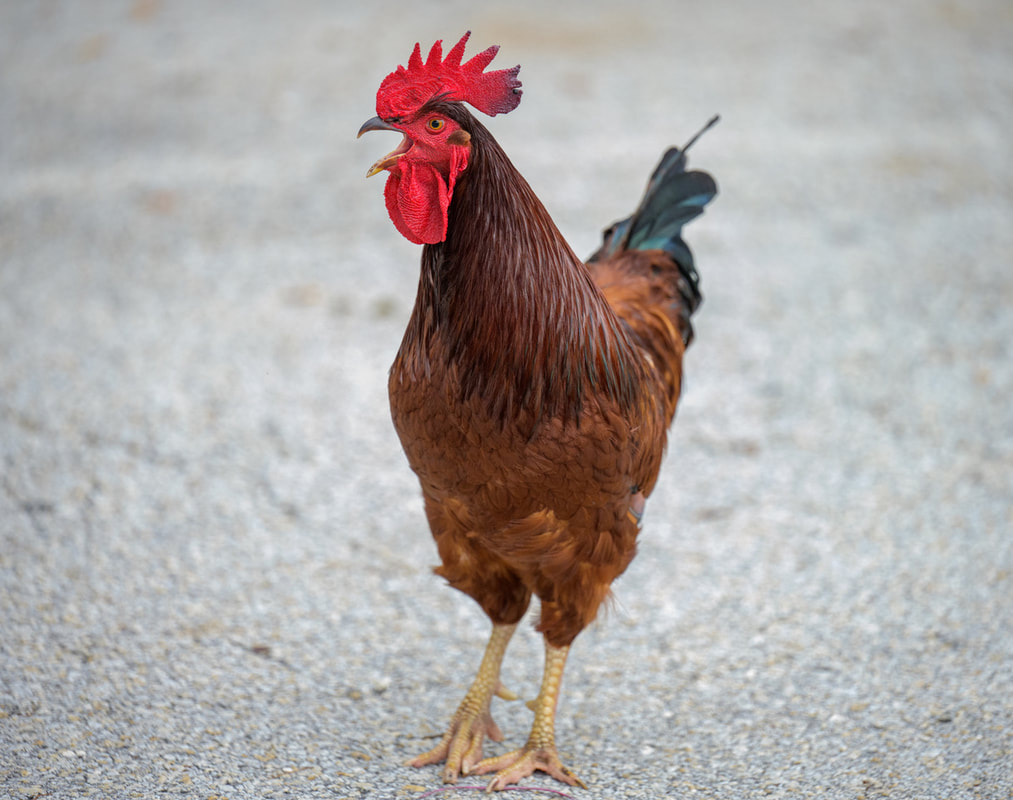
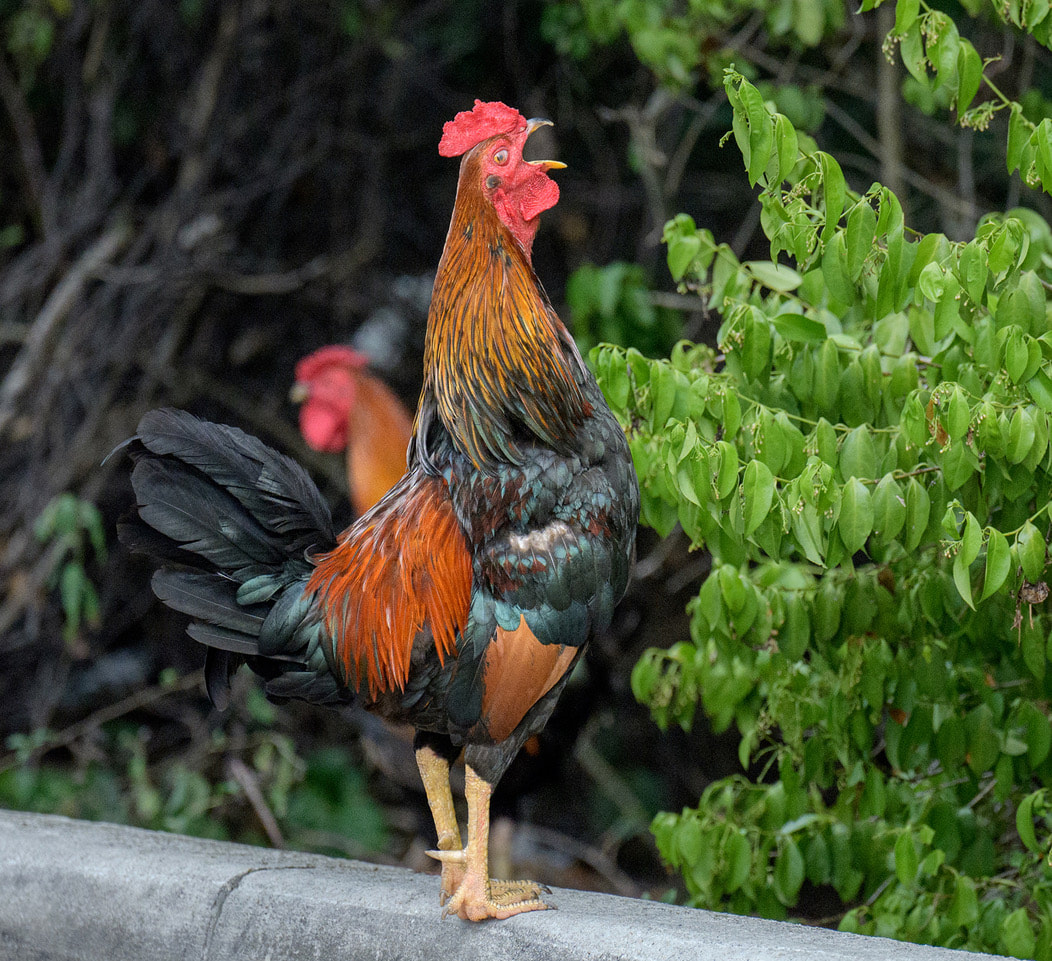
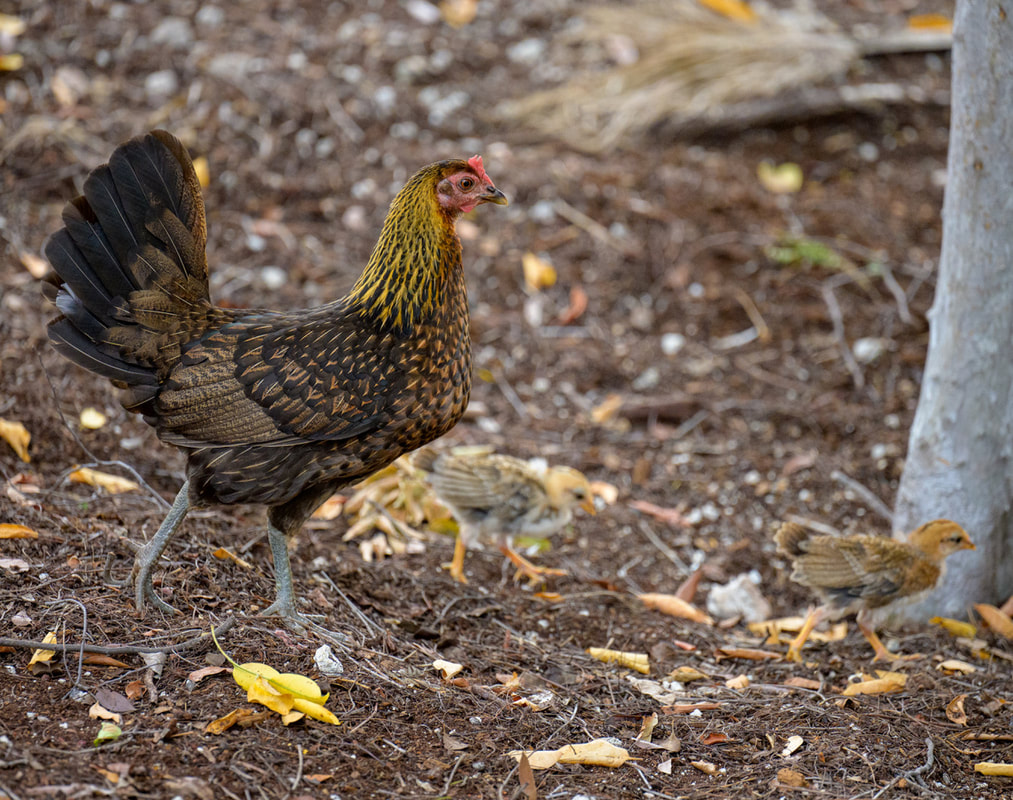
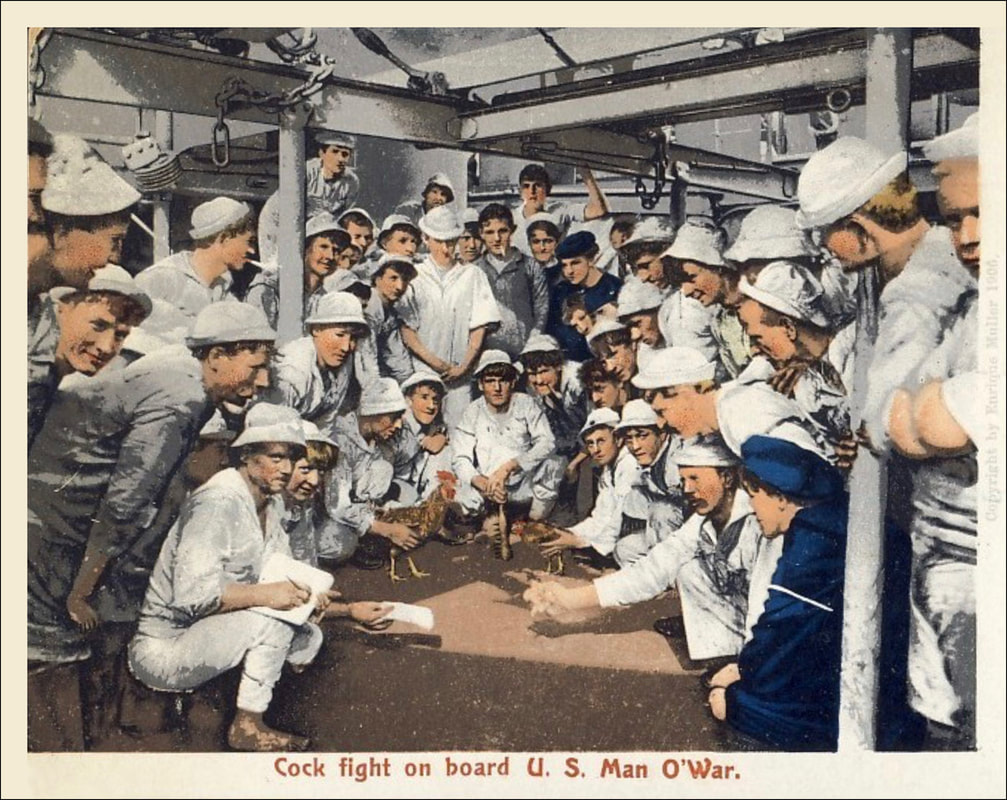
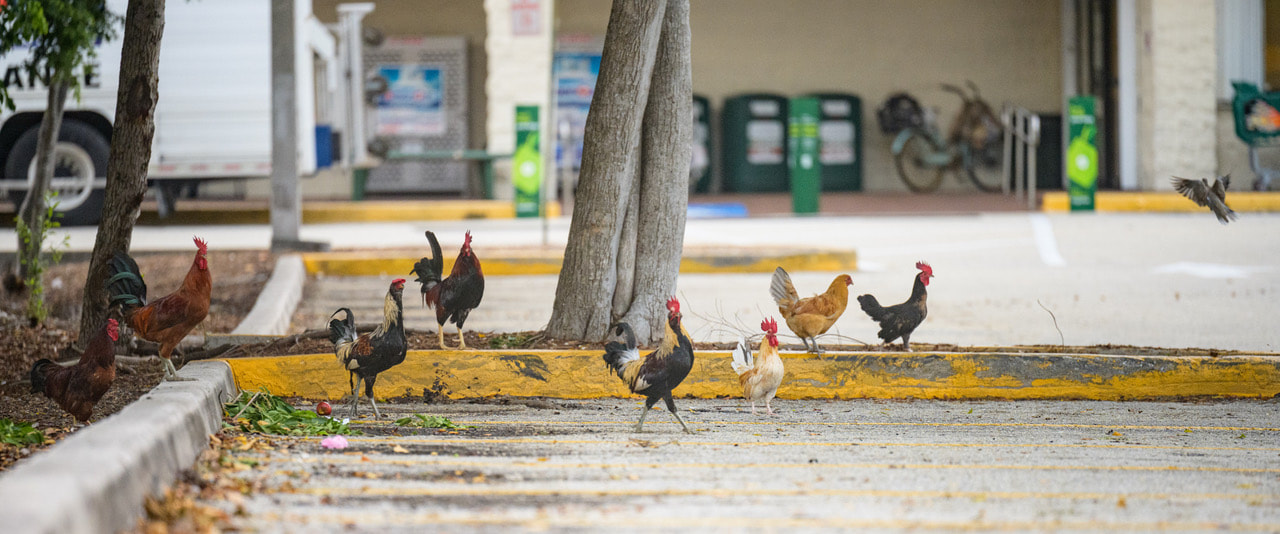
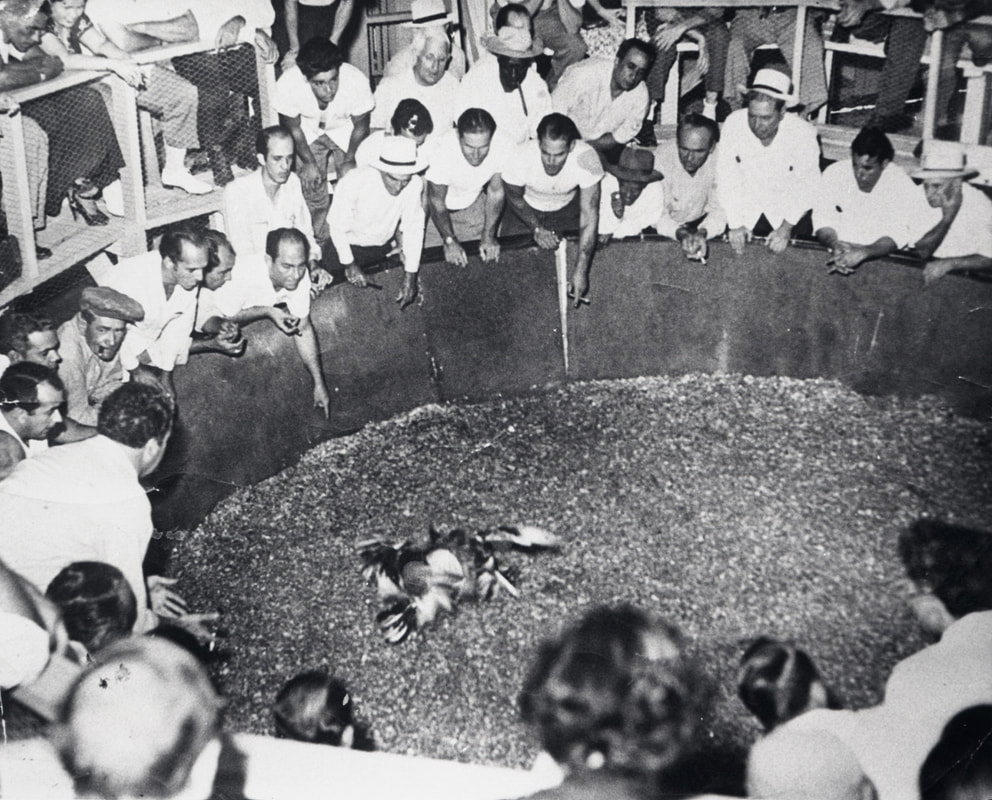
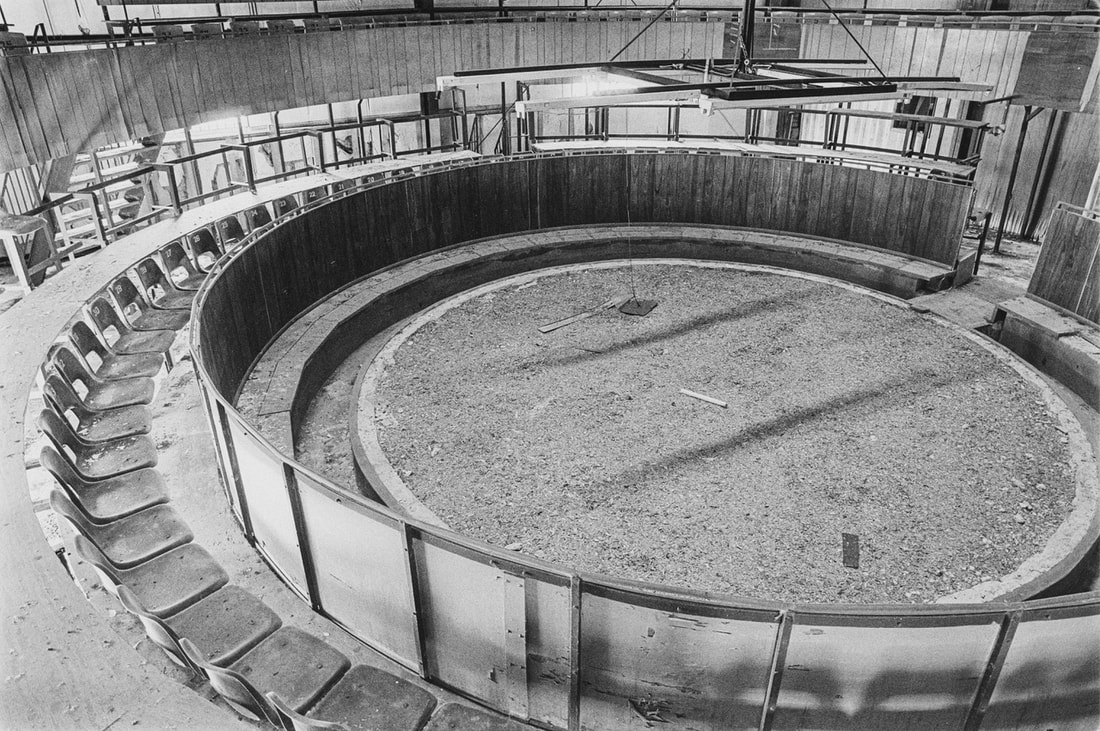
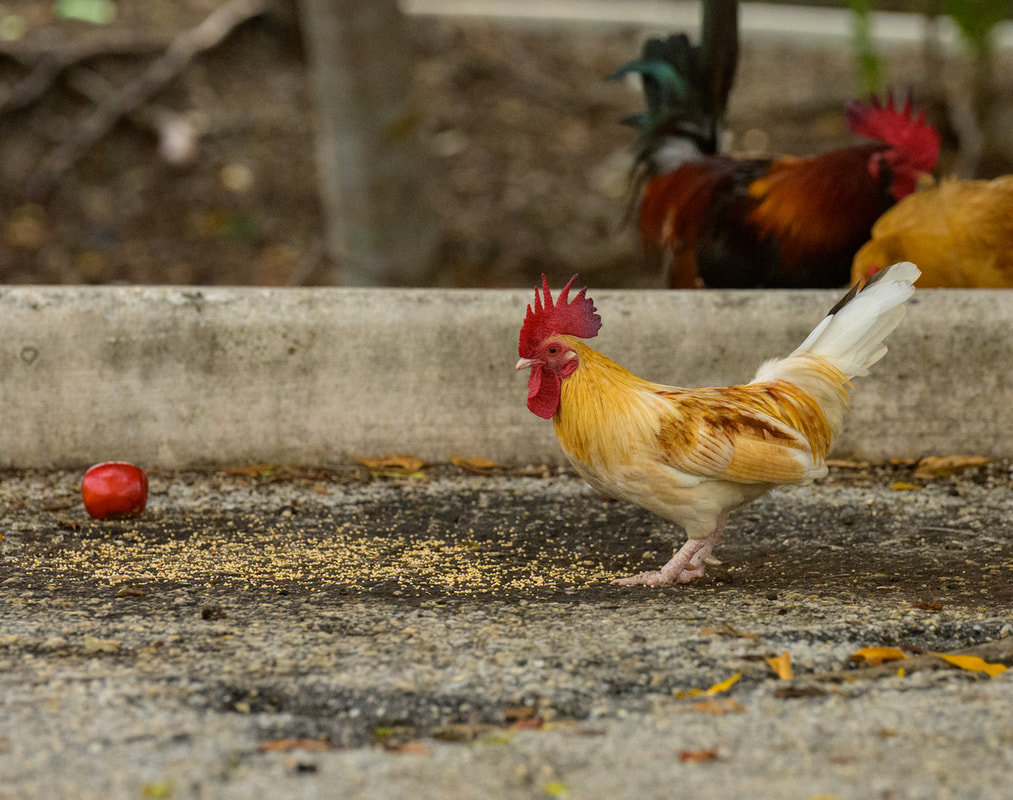
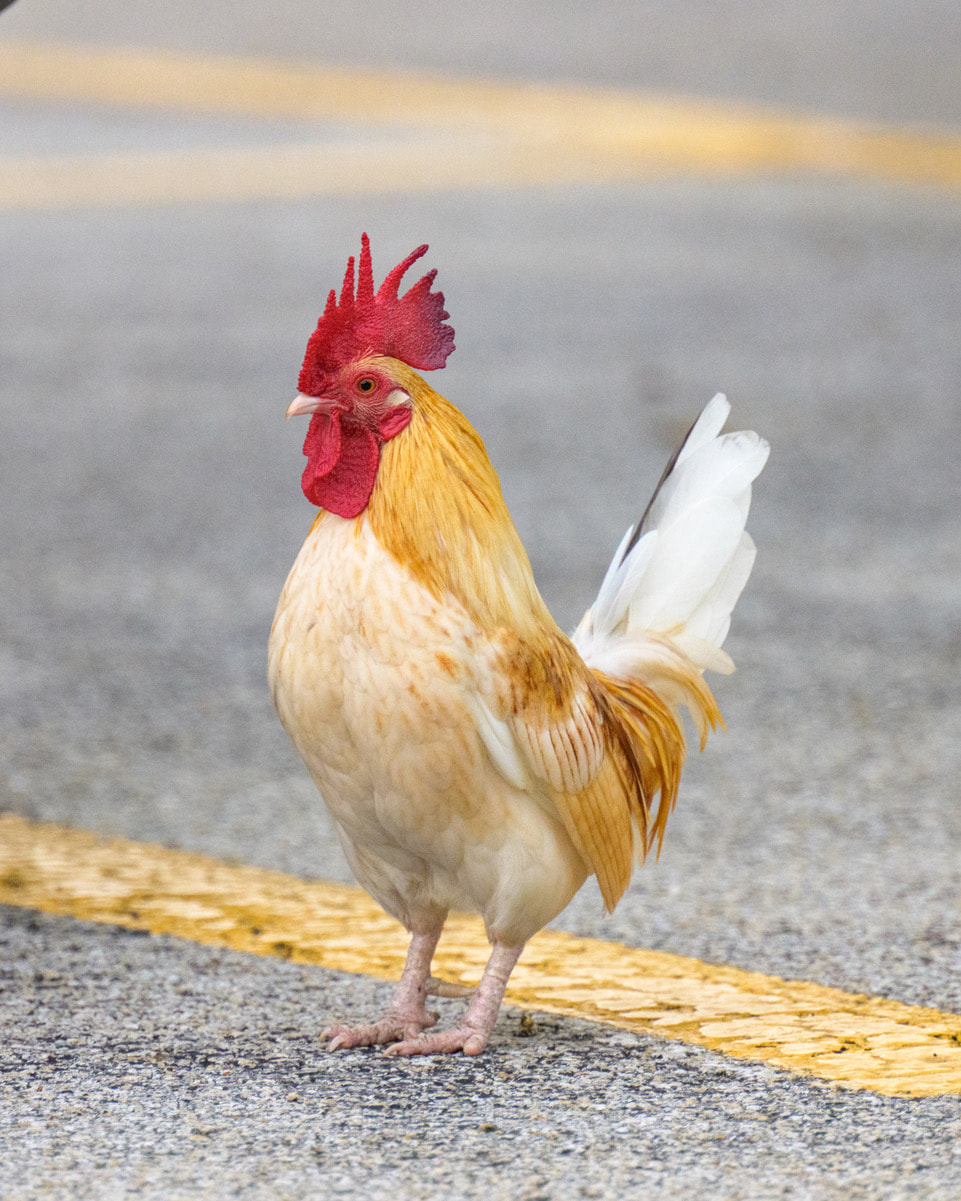
 RSS Feed
RSS Feed
